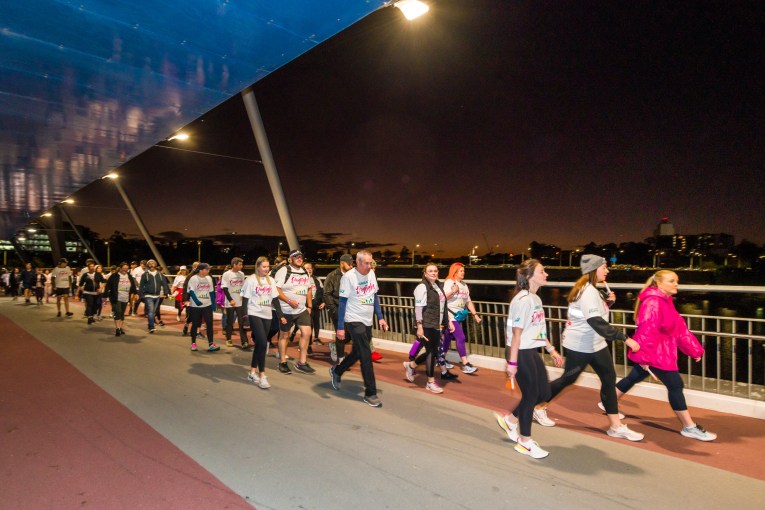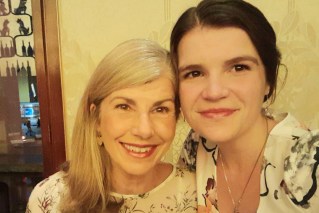
Heart starter: Health-tech leader LuminaX is pumping on the Coast
If you want to check the pulse of innovation in Queensland, local healthtech accelerator LuminaX is proof that it is racing ahead.

Located in the new Gold Coast Health & Knowledge Precinct at Southport, LuminaX is only two years old. Yet it has already accelerated 21 Australian startups, with another 10 set to complete the program in the coming months.
The incubator attracts startup founders from across Australia, drawn by the program’s unique focus on healthtech, its intensive workshops guiding commercialisation, and its venture capital partners and mentors network.
That three startups each intake may also receive an offer of equity investment post-program is an added bonus.
LuminaX operates within the Cohort Innovation Space, and is supported by Queensland Government, Advance Queensland and City of Gold Coast, as well as key industry partners.
Before joining Cohort, program director Dren Xërxa spent eight years at the Center for Entrepreneurship & Executive Development (CEED) in Washington, DC developing and managing innovation activities and programs across fifteen countries.
Working alongside hundreds of startup and scaleup founders, he said it is where his passion for supporting innovation “truly flourished”.
“It allowed me to collaborate with some of the most remarkable and visionary entrepreneurs in existence,” Xërxa said.
“Witnessing their determination, resilience and transformative ideas inspired me to contribute further to the startup ecosystem.”
His work at CEED also provided insight into the optimum conditions for startups to thrive and innovate.

Cohort director Dren Xerxa at LuminaX demo night 2022
“By concentrating on [the healthtech] sector, LuminaX is creating a niche ecosystem that encourages collaboration and innovation [and brings] together startups, industry and mentors who have expertise and sector experience,” he said.
“This approach encourages collaboration and peer-sharing among participants, leading to cross-pollination of ideas and innovation.”
Xërxa said founders often lack experience or expertise in some areas of business development, which LuminaX addressed through mentorship and guidance.
“This mentorship helps founders navigate challenges, make informed decisions, and develop strategies to overcome obstacles,” he said.
Speaking with some of the participants around the halfway mark of the 14-week program revealed just how invaluable LuminaX was proving to be.
Wellifiy founder and CEO Noam Dishon commutes from Melbourne to take part in the workshops and build his network.
“A really critical part of experience is being part of the cohort and hearing about other people’s journeys and challenges,” Dishon said.
A clinical psychologist, he is building a patient success platform for mental health providers to enhance the patient-clinician connection and sharing of information between appointments and after hospital stays.
He said there was a strong need for the product, which would provide clinicians with the insights needed to provide more personalised mental healthcare to patients.

Wellifiy’s Noam Dishon
“Shortly after discharge, I could have more information about the status of my Uber Eats delivery than how my patients are going,” he said.
“And my patients often have very little information to take away with them about their treatment plan and care.”
Since receiving angel funding three years ago, Dishon and his cofounder Paul Coia, who brings the tech skills, have been bootstrapping and relying on the revenue they generate from the startup.
Dishon said they have big ambitions for the company, hence their involvement in LuminaX.
Also from Melbourne is creative technologist Pete Martin, who joined the incubator with his Sydney-based Flintworks cofounder Dr Tia Cummins.
Flintworks CTO Martin has decades of experience under his belt, winning industry awards and working with companies such as Dolby Labs and Tom Tom, but has now stepped back from his corporate career to focus on giving back, particularly in the area of mental health.
CEO Cummins, meanwhile, is a clinical neuroscientist specialising in the long-term effects of trauma, and it is her expertise in the field that is honing their startup’s focus.
“For post-traumatic stress disorder, the gold standard treatment is exposure therapy, which unfortunately only really works in 30% of patients,” Cummins explained.
“We’ve made [this] better and safer by elevating them into virtual reality.”
Using an iPad paired with the patient’s virtual reality (VR) headset, the clinician can build the therapeutic environment in real time, over time delivering the exposure therapy and allowing the patient to get acquainted with the memory of the precipitating event.
“Instead of heading straight into a car crash, for example, [the clinician] is able to put them into an empty freeway, and then gradually build it up until the patient’s able to be in a car on a busy freeway,” Cummins said.
Last year, Flintworks conducted a pilot study with a prototype of the VR product with clinics and hospitals across Australia and Europe; feedback from clinicians, she said, was “excellent”.
Cummins’ expertise in and understanding of PTSD is vast: her interest in the condition stemming from her time in the British Army and upbringing in Northern Ireland; her work focused on Vietnam veterans and the impact of trauma on their brains as they age.
She echoed Dishon’s comments about finding a like-minded cohort of health-centric entrepreneurs and said that “was worth its weight in gold”.
As part of the LuminaX program, the Flintworks cofounders pitched to Ramsay Healthcare, a potential customer of the VR technology.
“Being in a room full of health executives and being able to share our story and product with them and get feedback was amazing,” she said.
Fellow LuminaX participant Lucie Dawson is hoping her involvement in the program will lead to angel funding for Templa, an app combining motivational psychology and personal accountability to help those going through a transitional period in their lives.
The app, she said, is in its “rudimentary, minimum viable product stage” but has still had over 2000 downloads without any marketing support. Investment will take the subscription-based app to the next stage.
LuminaX was recommended to Templa cofounder and CEO Dawson by a Brisbane-based venture capitalist.
“The program has [delivered] a wealth of knowledge through a myriad of different mentors from different industries and experiences,” she said.

Templa’s Lucie Dawson
Highlights for her have included sessions with Vu Tran of corporate training tech unicorn Go1 and Nic Blair of telehealth platform Midnight Health.
Dawson is originally from the United Kingdom and has been mostly living in Australia since 2008. Her cofounders, Claire Crosier and Michael Graham, are both in the United States. Dawson said she is happy to be based here.
“Since coming back to Australia last year, it’s been really nice to see the contrast in the startup scene, versus in the US,” she said.
“The Australian startup scene seems much more friendly, responsive and supportive.”
Even with this year’s LuminaX yet to wrap, she said it had been “an eye-opening experience” learning from the mentors and meeting other in the program.
“I feel privileged to be part of such an amazing group… [they] really inspire me with their vision and drive to create something that’s going to help so many people and be of service as well,” she said.
LuminaX’s Dren Xërxa said the program now has more than 40 mentors and coaches helping to foster the next generation of innovators.
“Building a strong network of contacts is crucial for founders [who can] leverage these connections to accelerate their startup’s growth and overcome the challenges of building a business from scratch,” Xërxa said.
“LuminaX often provides seed funding or investment through our VC partners, mentor network, and also exposes them to capital opportunities, like VCs and angel networks in Australia.
“[Having this] access to capital, founders overcome the initial hurdle of acquiring funds and [can] focus on building their businesses.”
For Flintworks’ Tia Cummins, the healthcare focus of LuminaX is another key benefit.
She and cofounder Pete Martin have been in other accelerators that, she said, were “great in their own way”, but had “a couple health startups and the rest might be fintech, proptech or whatever else”.
“Health is such a different ballgame to any other sector, we just have very different needs and requirements,” she said.
“With LuminaX, it’s groundbreaking work that they’re doing.”














